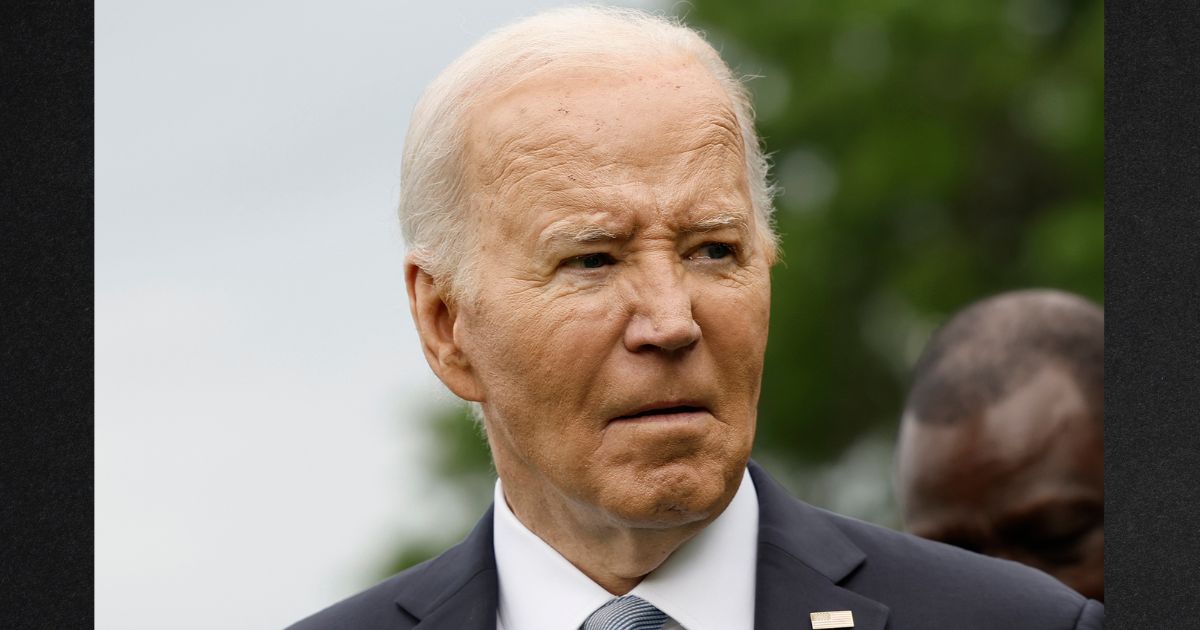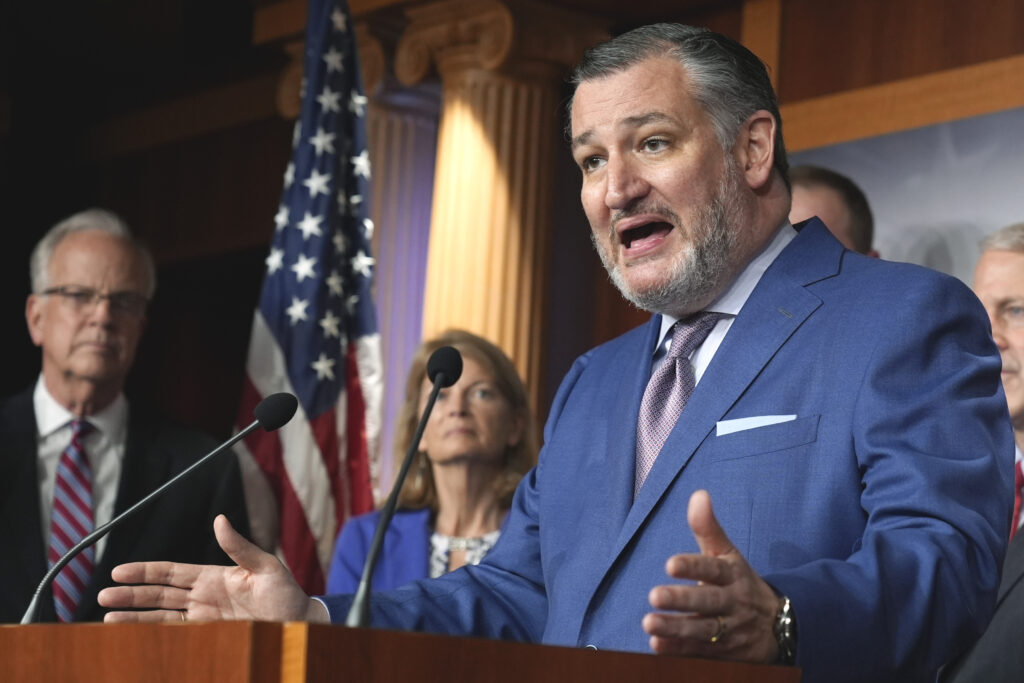Democrats’ price controls on prescriptions are harming Americans’ health
Less than 18 months after Democrats pushed through price controls on Medicare’s prescription drug payments to fund subsidies for Tesla and other green initiatives, the consequences are becoming clear. Pharmaceutical companies are now responding to these misguided incentives, resulting in delays in bringing life-enhancing and life-saving treatments to patients.
In a recent report, Bloomberg highlighted how drugmakers are intentionally slowing down the release of new products to maximize revenue before Medicare begins “negotiating” drug prices. This strategy ultimately harms patients who are in desperate need of innovative treatments.
Drug Delays
The Bloomberg story doesn’t hold back in its description:
Drugmakers are intentionally delaying the release of products to bypass President Joe Biden’s plan to lower medication prices. … Companies are suspending clinical trials and shifting timelines to maximize revenue, even if it means patients have to wait longer for new therapies.
According to the article, pharmaceutical companies have a limited window of time before the “negotiation” process begins: nine years for small-molecule pills and thirteen years for large-molecule biologic products. Naturally, these companies are focused on maximizing revenue during this period.
As a result, companies have a strong incentive to seek approval for their drugs to treat the broadest possible condition first, even if it means delaying treatments for other medical conditions. For example, Roche may delay seeking approval for a new drug to treat ovarian cancer until it gets approved for prostate cancer, potentially leaving ovarian cancer patients without a treatment option for three years.
In simpler terms, this means that patients with rare diseases or conditions affecting a small number of people are likely to be the most affected by these delays. Pharmaceutical companies will prioritize drugs that can treat millions over those that can only help a few thousand.
Bloomberg also points out that while drugs treating one rare disease are exempt from price negotiations, drugs treating two rare diseases are not. This discourages companies from seeking approvals for treatments for lesser-known conditions, further disadvantaging patients.
These consequences were predictable. In addition to the issues discussed in the Bloomberg report, a blog post in Health Affairs highlighted the potential harm of reduced investment in long-term studies and poorer quality medical research due to the time constraints imposed by the “negotiation” process.
It’s important to recognize that the government’s intervention in drug pricing is the root cause of these issues. While some may criticize drugmakers for their actions, it’s crucial to understand that they are driven by financial incentives. If it becomes unprofitable to invest in new drugs, companies may shift their focus to other projects, leaving patients with even fewer treatment options.
Progressives who advocate for government control over healthcare must realize that no one is entitled to ”free” new treatments. The more the government imposes price controls, the fewer innovative treatments will be developed.
rnrn
How are pharmaceutical companies responding to Medicare’s price controls?
The Negative Consequences of Medicare’s Price Controls on Prescription Drugs
Less than 18 months after Democrats pushed through price controls on Medicare’s prescription drug payments to fund subsidies for Tesla and other green initiatives, the consequences are becoming clear. Pharmaceutical companies are now responding to these misguided incentives, resulting in delays in bringing life-enhancing and life-saving treatments to patients.
In a recent report, Bloomberg highlighted how drugmakers are intentionally slowing down the release of new products to maximize revenue before Medicare begins “negotiating” drug prices. This strategy ultimately harms patients who are in desperate need of innovative treatments.
The Bloomberg story doesn’t hold back in its description: “Drugmakers are intentionally delaying the release of products to bypass President Joe Biden’s plan to lower medication prices. … Companies are suspending clinical trials and shifting timelines to maximize revenue, even if it means patients have to wait longer for new therapies.”
According to the article, pharmaceutical companies have a limited window of time before the ”negotiation” process begins: nine years for small-molecule pills and thirteen years for large-molecule biologic products. Naturally, these companies are focused on maximizing revenue during this period.
As a result, companies have a strong incentive to seek approval for their drugs to treat the broadest possible condition first, even if it means delaying treatments for other medical conditions. For example, Roche may delay seeking approval for a new drug to treat ovarian cancer until it gets approved for prostate cancer, potentially leaving ovarian cancer patients without a treatment option for three years.
This kind of prioritization based on profitability rather than patient need is a direct consequence of the price controls imposed by Democrats. By limiting the financial rewards for developing and bringing new drugs to market, the government has inadvertently created a disincentive for pharmaceutical companies to pursue treatments for less common or niche medical conditions.
Innovation in the pharmaceutical industry is driven by the promise of financial gain. Without the ability to recoup their investments and generate profits, companies have less motivation to engage in research and development that may yield groundbreaking treatments for patients.
Moreover, these delays in the release of new drugs limit the options available to healthcare professionals, leaving them with fewer tools to address the diverse needs of their patients.
It is important to recognize that while price controls may seem like a quick fix to lower drug prices, they have far-reaching and unintended consequences. By impeding the development and release of innovative treatments, they ultimately harm the very patients they aim to help.
In order to ensure timely access to life-enhancing and life-saving treatments, policymakers should consider alternative solutions that encourage pharmaceutical innovation while addressing the affordability of medication for patients. This could involve implementing reforms that promote competition, increase transparency in pricing, and incentivize the development of new drugs through patent simplification and regulatory flexibility.
In conclusion, the consequences of Medicare’s price controls on prescription drugs are becoming clear. Delays in the release of new treatments due to pharmaceutical companies prioritizing revenue generation over patient needs are a direct result of these policies. It is essential for policymakers to reevaluate their approach and seek alternative solutions that balance affordability with innovation, ensuring that patients have timely access to the treatments they need.
" Conservative News Daily does not always share or support the views and opinions expressed here; they are just those of the writer."





